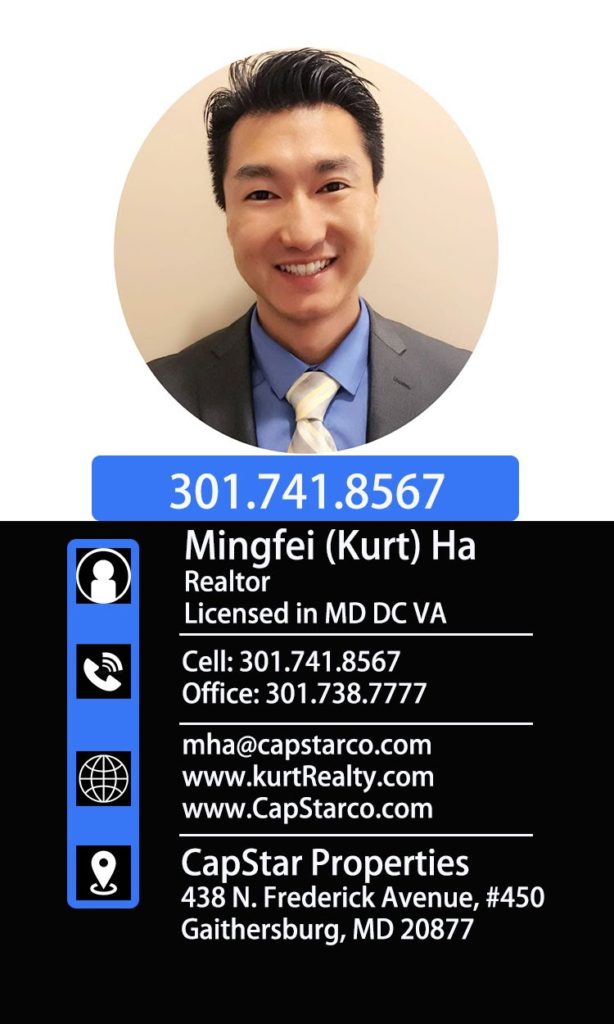Californians charged with runnng $6M home-selling scam
AP
4/08/2021
LOS ANGELES (AP) — A brother and sister from Southern California have been charged with running a $6 million scheme in which they sold homes to buyers without the owners’ consent.
Adolfo Schoneke, 43, of Torrance, and Bianca Gonzalez, 38, of Walnut, were arrested Tuesday and pleaded not guilty to conspiracy, wire fraud and aggravated identity theft, according to a statement from the U.S. attorney’s office.
The two and others allegedly ran a number of real estate and escrow companies that would offer properties for sale at below-market prices “even though many, in fact, were not for sale, and they did not have authority to list them,” the statement said.
Six Spaces Home Staging

Contact: Hongliang Zhang
Tel: 571-474-8885
Email: zhl19740122@gmail.com
Schoneke and Gonzalez used other people’s brokerage licenses to list the homes on real estate websites and accepted multiple offers for the same home, prosecutors contend.
“The co-conspirators allegedly were able to string along the victims – sometimes for years – by telling them closings were being delayed because lenders needed to approve the purported short sales,” the U.S. attorney’s office said.
Several hundred buyers were conned out of more than $6 million, authorities allege.
Schoneke and Gonzalez each could face sentences of up to 162 years in federal prison if convicted.
Department of Justice
U.S. Attorney’s Office
Central District of California
FOR IMMEDIATE RELEASETuesday, April 6, 2021
Torrance Man and His Sister Charged in Multimillion Dollar Real Estate Scam Involving Fake Open Houses at Not-for-Sale Homes
LOS ANGELES – A Southern California brother-and-sister team were arrested today on federal charges alleging they orchestrated a $6 million real estate fraud scam in which they listed homes without the owners’ consent and collected money from multiple would-be buyers for each of the not-for-sale homes.
Adolfo Schoneke, 43, of Torrance, and his sister, Bianca Gonzalez, a.k.a. Blanca Schoneke, 38, of Walnut, each pleaded not guilty this afternoon to nine charges contained in an indictment unsealed after their arrests. The indictment charges Schoneke and Gonzalez with one count of conspiracy, seven counts of wire fraud, and one count of aggravated identity theft.
According to the indictment, Schoneke and Gonzalez, with the help of co-conspirators, operated real estate and escrow companies based in Cerritos, La Palma and Long Beach under a variety of names, including MCR and West Coast. The indictment alleges Schoneke and Gonzalez found properties that they would list for sale – even though many, in fact, were not for sale, and they did not have authority to list them for sale – and they then marketed the properties as short sales providing opportunities for purchases at below-market prices.
Using other people’s broker’s licenses, Schoneke and Gonzalez allegedly listed the properties on real estate websites such as the Multiple Listing Service (MLS). In some cases, the indictment alleges, the homes were marketed through open houses that co-conspirators were able to host after tricking homeowners into allowing their homes to be used.
As part of the alleged scheme, the co-conspirators accepted multiple offers for each of the not-for-sale properties, hiding this fact from the victims and instead leading each of the victims to believe that his or her offer was the only one accepted. The co-conspirators allegedly were able to string along the victims – sometimes for years – by telling them closings were being delayed because lenders needed to approve the purported short sales.
The indictment also alleges that Schoneke and Gonzalez directed office workers to open bank accounts in the office workers’ names. Those accounts were used to receive down payments on the homes and other payments from victims who were convinced to transfer the full “purchase price” to these bank accounts after receiving forged short sale approval letters. Schoneke and Gonzalez also allegedly directed the office workers to withdraw large amounts of cash from these accounts and give it to them – a procedure that allowed Schoneke and Gonzalez to take possession of the fraud proceeds while hiding their involvement in the scheme.

Investigators estimate that several hundred victims collectively lost more than $6 million during the scheme.
During the arraignments this afternoon, a trial was scheduled for June 1. Both defendants will remain in custody at least until detention hearings scheduled for Friday for Schoneke and April 13 for Gonzalez.
An indictment contains allegations that a defendant has committed a crime. Every defendant is presumed innocent until and unless proven guilty beyond a reasonable doubt.

If convicted of all charges, Schoneke and Gonzalez each would face a statutory maximum sentence of 162 years in federal prison.
This matter was investigated by the FBI and the Federal Deposit Insurance Corporation, Office of Inspector General. The investigation was initiated by numerous complaints to the Long Beach Police Department and the Los Angeles County Sheriff’s Department, both of which provided substantial assistance during the federal investigation.
This case is being prosecuted by Assistant United States Attorney Kerry L. Quinn of the Major Frauds Section.


SCAM ALERT: PROTECT YOURSELF FROM THESE REAL ESTATE SCAMS!
By Global Property Systems Real Estate
4/08/2021
A friend of ours was recently threatened by a crooked real estate agent who found a clever way to wrangle money from her. Fortunately, she contacted us for advice and we were able to protect her from this fraudulent agent.
So I thought today it would be good to let you know about some real estate scams I’ve become aware of recently:
1. The mortgage closing scam
This particular scam is spreading across the country. It’s become so prevalent that the FBI estimates it has led to over $1 billion in stolen or diverted funds in 2017 alone.
It starts when hackers gain access to a real estate agent’s email account. Then, when it’s time to close a particular deal, the hackers, posing as the real estate agent, send instructions to the homebuyer on where to wire the money.
Of course, it’s only after the buyer has sent thousands of dollars to an unknown bank account that the truth comes out—the real estate agent wasn’t actually the one reaching out, and the buyer has been scammed.
2. Fake real estate lawyers
This scam is similar to the first one, in that the scammers will impersonate somebody legitimately involved with a deal. In this case, the hackers will impersonate a real estate lawyer who is associated with a particular home sale.
Then, at the time of closing, they will contact the buyer, either by email or over the phone, and tell them the wire destination has been changed. If this scam works, the homebuyer could again be out thousands of dollars.
3. The bait-and-switch
Unlike the first two scams, this scam targets sellers. It also doesn’t require any hacking or impersonation—just a dishonest buyer. Here’s how it works: A buyer makes an offer that’s well above the listed price. The seller happily agrees, and the contract is signed. But, then, the buyer starts procrastinating, making excuses, and dragging out the process for months or even a year. In the meantime, the seller continues to pay costs for the home, and is getting more and more emotionally worn out.
In the end, the unscrupulous buyer flatly says they can only buy the home at a lower price, usually under the listed price. And the seller, desperate by now, frequently agrees.
4. The fake real estate agent.
One day, a lady called us asking for the key for one of our properties on the market. She said she had just rented it and wanted to move in as soon as possible. Unfortunately for her, the house wasn’t for rent. It was for sale. And we had never heard of her, or her “real estate agent,” who she said was a very nice Christian minister vacationing abroad.
She found the property on Craig’s List and had contacted the so-called minister who claimed to be out of the country. He told her the rent, which was very reasonable (of course) and said he couldn’t show the house to her but she was free to visit the property and look in the windows. She did, and deciding to “rent” the house, sent him two months rent as a deposit. She then came to us, asking for the key. She didn’t get it.
5. The crooked real estate agent.
As I mentioned earlier, we have a friend who owns property on the island of Antigua in the Caribbean. An Antiguan real estate agent contacted her claiming to have a buyer willing to give her over $2 million dollars for her two undeveloped mountainside properties and an adjoining lot with a small house built on it. The agent said our friend needed to sign him as her real estate agent so he could conduct the sale. Fortunately, she asked us to read over his contract.
We smelled a rat immediately. For one thing, if there was already a buyer, why did she need to hire an agent to represent her? We ran a Current Market Analysis for similar properties sold recently in Antiqua and the offering was way more than anything listed or sold. The truth came out when we read the fine print in the contract. It specified that if the properties failed to sell after a certain period of time, the contract would be cancelled and she would owe the agent a 2.5 percent commission.
We suspect the agent had neither a buyer nor a shred of decency for crafting a contract guaranteeing him a commission for not selling a property at a highly-inflated price.
So, how can you protect yourself against these and other scams?
Confirm everything over a phone call (to a number that you already know to be valid)—or even better, in person. Never send account information over e-mail. And ultimately, find a legitimate Realtor you trust to represent your best interests.
Source: https://www.globalpropertysystems.com/scam-alert-protect-yourself-from-these-real-estate-scams/




